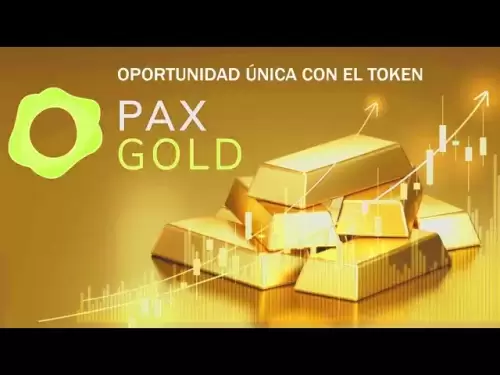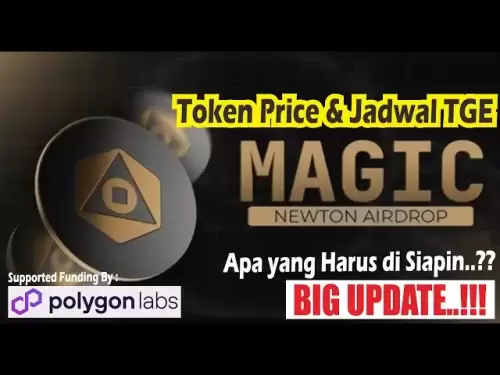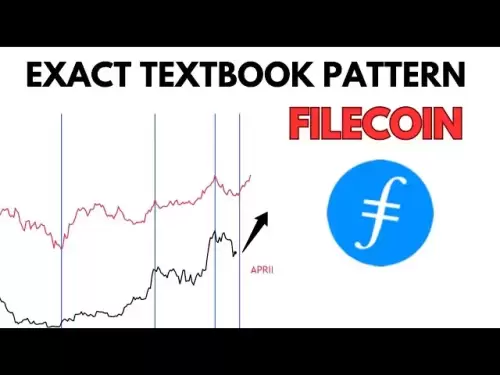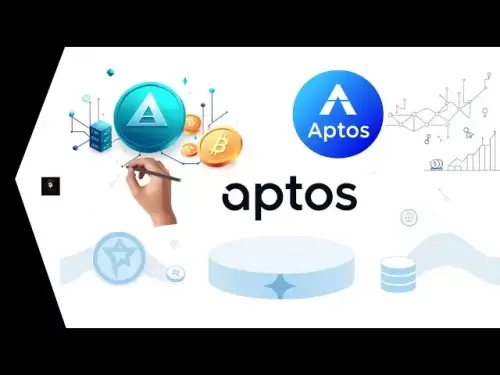-
 Bitcoin
Bitcoin $99,594.2189
-3.59% -
 Ethereum
Ethereum $2,188.5793
-9.00% -
 Tether USDt
Tether USDt $1.0001
-0.02% -
 XRP
XRP $1.9745
-5.82% -
 BNB
BNB $608.9511
-3.73% -
 Solana
Solana $130.4575
-5.93% -
 USDC
USDC $1.0000
0.01% -
 TRON
TRON $0.2637
-3.59% -
 Dogecoin
Dogecoin $0.1493
-5.97% -
 Cardano
Cardano $0.5322
-6.72% -
 Hyperliquid
Hyperliquid $33.9044
3.33% -
 Bitcoin Cash
Bitcoin Cash $449.6411
-5.46% -
 UNUS SED LEO
UNUS SED LEO $8.9629
0.43% -
 Sui
Sui $2.3943
-8.35% -
 Chainlink
Chainlink $11.4402
-7.83% -
 Stellar
Stellar $0.2241
-6.49% -
 Avalanche
Avalanche $16.1489
-4.24% -
 Toncoin
Toncoin $2.7182
-5.94% -
 Shiba Inu
Shiba Inu $0.0...01040
-5.72% -
 Litecoin
Litecoin $78.7882
-4.07% -
 Ethena USDe
Ethena USDe $1.0004
-0.01% -
 Hedera
Hedera $0.1305
-7.45% -
 Monero
Monero $297.0030
-5.32% -
 Dai
Dai $0.9997
-0.02% -
 Polkadot
Polkadot $3.1834
-6.03% -
 Bitget Token
Bitget Token $3.9788
-7.03% -
 Uniswap
Uniswap $6.1327
-10.62% -
 Pepe
Pepe $0.0...08689
-8.30% -
 Pi
Pi $0.4826
-9.65% -
 Aave
Aave $219.8043
-9.69%
What currency is Request (REQ) currency?
Leveraging the Ethereum blockchain, Request (REQ) offers secure, instant, and low-cost global payments without intermediaries.
Dec 25, 2024 at 01:16 am
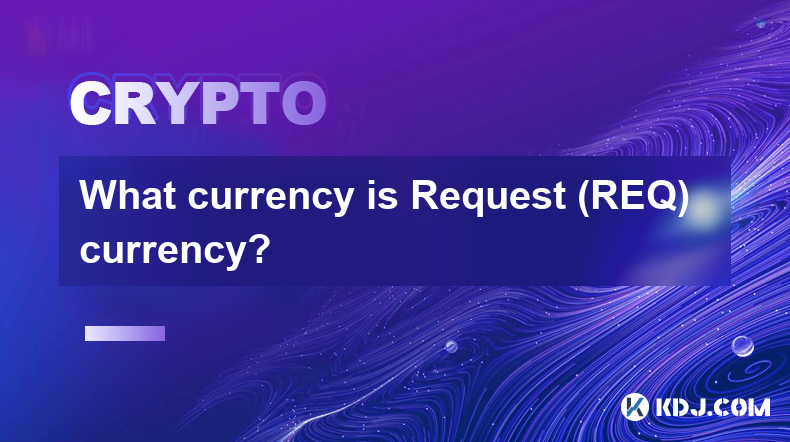
Key Points:
Definition of Request (REQ) Currency:
- A decentralized payment platform built on the Ethereum blockchain.
- Enables secure and instant payments without intermediaries.
Benefits of Request (REQ):
- Low transaction fees
- Fast transaction times
- Transparent and immutable transaction records
Use Cases of Request (REQ):
- Cross-border remittances
- Online and offline payments
- Donations and fundraising
What is Request (REQ) Currency?
Request (REQ) is a decentralized payment platform that leverages the Ethereum blockchain technology to facilitate secure, instant, and low-cost payments. It aims to eliminate the need for intermediaries, providing users with a more efficient and cost-effective payment solution.
How Request (REQ) Works
Request (REQ) operates on a decentralized network, utilizing smart contracts on the Ethereum blockchain. These smart contracts automate the payment process, ensuring transparency, security, and immutability of transaction records.
Token Utility:
- The native token of the Request platform is REQ. It serves as a medium of exchange within the network, enabling users to send and receive payments.
Decentralization and Security:
- The Request platform is decentralized, meaning it is not controlled by any central authority. All transactions are recorded on the Ethereum blockchain, ensuring transparency and security.
Low Transaction Costs:
- Request leverages the Ethereum blockchain, which offers low transaction fees compared to traditional payment systems. This makes it an attractive option for both small and large-scale transactions.
Benefits of Using Request (REQ)
- Cost-Effective: Request's low transaction fees make it an attractive alternative to traditional payment systems, especially for cross-border transactions and micropayments.
- Fast and Secure: The decentralized nature of Request enables fast and secure transactions. The Ethereum blockchain's consensus mechanisms ensure the finality and immutability of all transactions.
- Transparent and Traceable: All transactions on the Request network are recorded on the Ethereum blockchain, providing full transparency. This allows for easy tracking and auditing of financial activities.
- Interoperability: Request is interoperable with other Ethereum-based applications and services, allowing users to seamlessly integrate it into their existing financial ecosystem.
Use Cases of Request (REQ)
Request (REQ) has a wide range of use cases across various industries and sectors. Some prominent applications include:
- Cross-Border Remittances: Request's low transaction fees and fast processing times make it ideal for sending money across borders, saving users significant costs compared to traditional remittance services.
- Online and Offline Payments: Request can be integrated into online and offline payment systems, enabling businesses to accept payments quickly, securely, and cost-effectively.
- Donations and Fundraising: Request offers a transparent and secure platform for collecting donations and fundraising. Donors can easily contribute to causes they support, and organizations can track the progress of their campaigns in real-time.
FAQs:
Why is Request (REQ) an attractive alternative to traditional payment systems?
- Request provides low transaction fees, fast processing times, enhanced security, and transparency, making it a viable solution for a wide range of payment needs.
Is Request (REQ) secure?
- Yes, Request is secure. It leverages the Ethereum blockchain's consensus mechanisms to ensure the integrity and immutability of transaction records.
How can I use Request (REQ)?
- Request can be used for various applications, including cross-border remittances, online and offline payments, donations, and fundraising.
Where can I buy Request (REQ)?
- Request (REQ) is available for purchase on cryptocurrency exchanges such as Coinbase, Binance, and Kraken.
Disclaimer:info@kdj.com
The information provided is not trading advice. kdj.com does not assume any responsibility for any investments made based on the information provided in this article. Cryptocurrencies are highly volatile and it is highly recommended that you invest with caution after thorough research!
If you believe that the content used on this website infringes your copyright, please contact us immediately (info@kdj.com) and we will delete it promptly.
- BTC, Iran Strike, and Markets: Navigating Geopolitical Tensions
- 2025-06-23 10:25:12
- MAGACOIN, Ethereum, Avalanche: A New Wave or Legacy Chains?
- 2025-06-23 10:25:12
- BlockDAG, Crypto Coins, and Leading Trends: What's Hot in 2025?
- 2025-06-23 10:45:12
- PEPE Exit, SUI Calls, and BlockDAG Coin: What's the Smart Money Doing?
- 2025-06-23 10:45:12
- Grant Cardone, Bitcoin, and Expansion: A New York State of Mind
- 2025-06-23 11:05:11
- BTC, $99K, Chaos: A Crypto Market Rollercoaster
- 2025-06-23 11:25:12
Related knowledge

How to customize USDT TRC20 mining fees? Flexible adjustment tutorial
Jun 13,2025 at 01:42am
Understanding USDT TRC20 Mining FeesMining fees on the TRON (TRC20) network are essential for processing transactions. Unlike Bitcoin or Ethereum, where miners directly validate transactions, TRON uses a delegated proof-of-stake (DPoS) mechanism. However, users still need to pay bandwidth and energy fees, which are collectively referred to as 'mining fe...

USDT TRC20 transaction is stuck? Solution summary
Jun 14,2025 at 11:15pm
Understanding USDT TRC20 TransactionsWhen users mention that a USDT TRC20 transaction is stuck, they typically refer to a situation where the transfer of Tether (USDT) on the TRON blockchain has not been confirmed for an extended period. This issue may arise due to various reasons such as network congestion, insufficient transaction fees, or wallet-rela...

How to cancel USDT TRC20 unconfirmed transactions? Operation guide
Jun 13,2025 at 11:01pm
Understanding USDT TRC20 Unconfirmed TransactionsWhen dealing with USDT TRC20 transactions, it’s crucial to understand what an unconfirmed transaction means. An unconfirmed transaction is one that has been broadcasted to the blockchain network but hasn’t yet been included in a block. This typically occurs due to low transaction fees or network congestio...

How to check USDT TRC20 balance? Introduction to multiple query methods
Jun 21,2025 at 02:42am
Understanding USDT TRC20 and Its ImportanceUSDT (Tether) is one of the most widely used stablecoins in the cryptocurrency market. It exists on multiple blockchain networks, including TRC20, which operates on the Tron (TRX) network. Checking your USDT TRC20 balance accurately is crucial for users who hold or transact with this asset. Whether you're sendi...

What to do if USDT TRC20 transfers are congested? Speed up trading skills
Jun 13,2025 at 09:56am
Understanding USDT TRC20 Transfer CongestionWhen transferring USDT TRC20, users may occasionally experience delays or congestion. This typically occurs due to network overload on the TRON blockchain, which hosts the TRC20 version of Tether. Unlike the ERC20 variant (which runs on Ethereum), TRC20 transactions are generally faster and cheaper, but during...

The relationship between USDT TRC20 and TRON chain: technical background analysis
Jun 12,2025 at 01:28pm
What is USDT TRC20?USDT TRC20 refers to the Tether (USDT) token issued on the TRON blockchain using the TRC-20 standard. Unlike the more commonly known ERC-20 version of USDT (which runs on Ethereum), the TRC-20 variant leverages the TRON network's infrastructure for faster and cheaper transactions. The emergence of this version came as part of Tether’s...

How to customize USDT TRC20 mining fees? Flexible adjustment tutorial
Jun 13,2025 at 01:42am
Understanding USDT TRC20 Mining FeesMining fees on the TRON (TRC20) network are essential for processing transactions. Unlike Bitcoin or Ethereum, where miners directly validate transactions, TRON uses a delegated proof-of-stake (DPoS) mechanism. However, users still need to pay bandwidth and energy fees, which are collectively referred to as 'mining fe...

USDT TRC20 transaction is stuck? Solution summary
Jun 14,2025 at 11:15pm
Understanding USDT TRC20 TransactionsWhen users mention that a USDT TRC20 transaction is stuck, they typically refer to a situation where the transfer of Tether (USDT) on the TRON blockchain has not been confirmed for an extended period. This issue may arise due to various reasons such as network congestion, insufficient transaction fees, or wallet-rela...

How to cancel USDT TRC20 unconfirmed transactions? Operation guide
Jun 13,2025 at 11:01pm
Understanding USDT TRC20 Unconfirmed TransactionsWhen dealing with USDT TRC20 transactions, it’s crucial to understand what an unconfirmed transaction means. An unconfirmed transaction is one that has been broadcasted to the blockchain network but hasn’t yet been included in a block. This typically occurs due to low transaction fees or network congestio...

How to check USDT TRC20 balance? Introduction to multiple query methods
Jun 21,2025 at 02:42am
Understanding USDT TRC20 and Its ImportanceUSDT (Tether) is one of the most widely used stablecoins in the cryptocurrency market. It exists on multiple blockchain networks, including TRC20, which operates on the Tron (TRX) network. Checking your USDT TRC20 balance accurately is crucial for users who hold or transact with this asset. Whether you're sendi...

What to do if USDT TRC20 transfers are congested? Speed up trading skills
Jun 13,2025 at 09:56am
Understanding USDT TRC20 Transfer CongestionWhen transferring USDT TRC20, users may occasionally experience delays or congestion. This typically occurs due to network overload on the TRON blockchain, which hosts the TRC20 version of Tether. Unlike the ERC20 variant (which runs on Ethereum), TRC20 transactions are generally faster and cheaper, but during...

The relationship between USDT TRC20 and TRON chain: technical background analysis
Jun 12,2025 at 01:28pm
What is USDT TRC20?USDT TRC20 refers to the Tether (USDT) token issued on the TRON blockchain using the TRC-20 standard. Unlike the more commonly known ERC-20 version of USDT (which runs on Ethereum), the TRC-20 variant leverages the TRON network's infrastructure for faster and cheaper transactions. The emergence of this version came as part of Tether’s...
See all articles





















